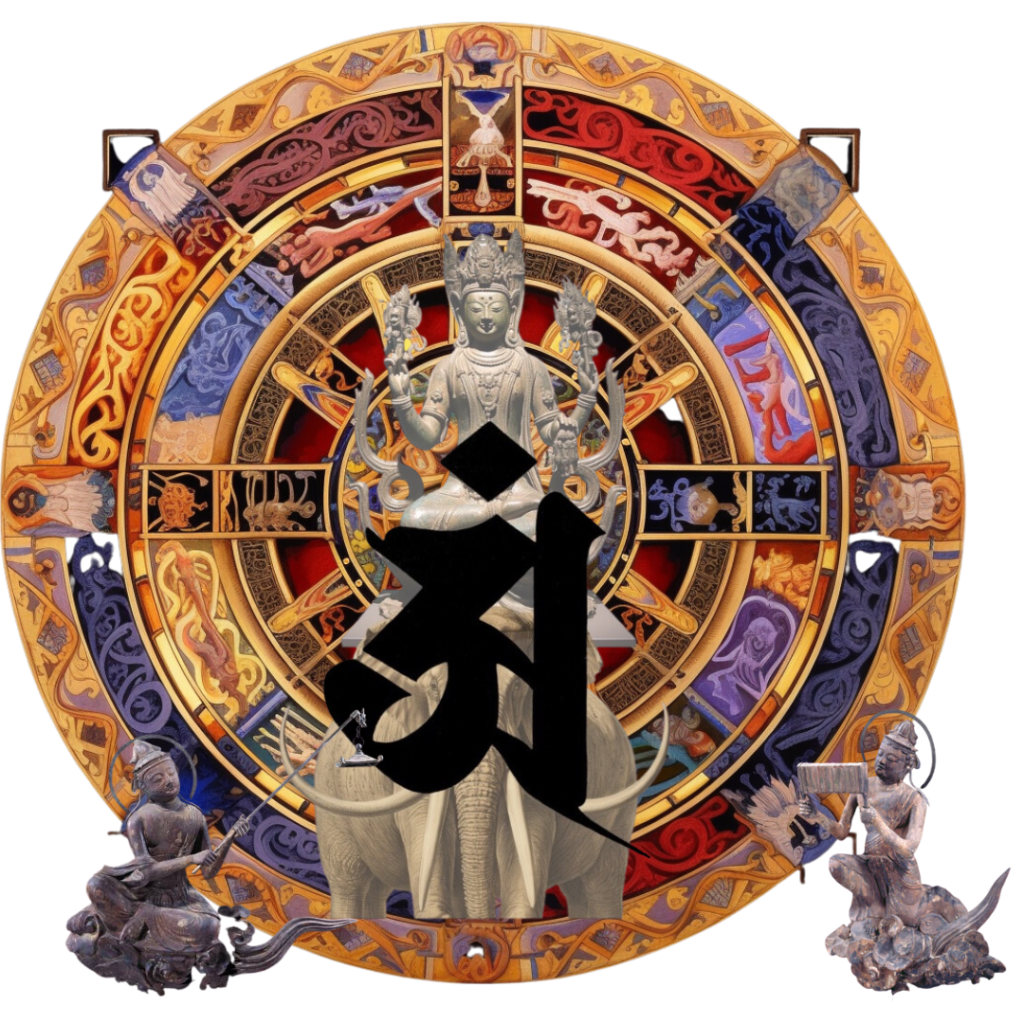"���Ȃ��̐S�ɂЂ��ރ^�C�v�F���i�ތ^�_�̋����[���T��"
�l�i�Ɛ��i�͂قړ��ӌ�Ƃ��Ďg�p����Ă���A���[���b�p�̐S���w�҂́u���i�v�A�A�����J�̐S���w�҂́u�l�i�v�Ƃ����X��������B
�u���i�v�̓M���V�A��̒������Ӗ����A���݂���ꂽ���̂��w���B����A�u�l�i�v�͑S�l�I�Ȍ��I�������Ӗ�����B
����I���ʂ̓����́u�C���v�ƌĂ�A���ꂪ���i�̊��w���\������B
�u�l�i�v�͑S�l�I�Ȃ��̂��w���A�u���i�v�͒m�I���ʂ���������ӓI�A�ӎu�I���ʂ̓������������Ƃ������B
�l�Ԃ̐��i�͌l�̑f���Ɗ�����`������A���̐l�炵����s�������������B
���i�͊���I�f���ƈӎu�I�f�����琬�藧���A�����_�I�ȗ��ꂩ��͑f���Ɗ��̑��ݍ�p�ɂ���Č`�������B
�M���V�A�̓N�w�҃e�I�t���X�g�X�����߂Đ��i�̗ތ^�_����A����̐��_��w��K�E�V���i�C�_�[���u���_�a���ތ^�v�\���Ă���B
�V���i�C�_�[�̐��_�a���ތ^�ɂ͔��g�^�A�}�T�^�A���M���R�^�A���M�^�A���g�^�A�C���Օό^�A�����^�A����^�A�ӎu�@�^�A���͌^��10��ނ�����A���ꂼ��̓�����������Ă���B
Personality and personality are used almost synonymously, with European psychologists tending to refer to them as ``personality,'' and American psychologists tending to refer to them as ``personality.''
"Character" is a Greek word meaning sculpture, and refers to something that is engraved. On the other hand, "personality" means the individual characteristics of the whole person.
Emotional characteristics are called ``temperament,'' and they constitute the base layer of personality.
``Personality'' refers to the whole person, and ``personality'' often refers to the characteristics of emotional and volitional aspects, excluding intellectual aspects.
Human personality is formed from an individual's qualities and environment, and indicates his or her personality and behavioral characteristics.
Personality consists of emotional predispositions and volitional predispositions, and from an embryological standpoint, it is formed by the interaction between predispositions and the environment.
The Greek philosopher Theophrastus was the first to propose a typology of personality, and contemporary psychiatrist K. Schneider published the ``psychopathic type''.
Schneider's 10 types of psychopathology are exaggerated, depressed, self-confident, fanatic, hyperactive, moody, explosive, heartless, willful, and helpless, each with their own characteristics. It is shown.
�l�i�Ɛ��i
�l�i�Ƃ͂��������A�Ȃ�ł��낤���B
Personality (�l�i)�Ƃ������ƂƁA Character (���i)�Ƃ������Ƃ�����B ���̓�̂� �Ƃ́A�قƂ�Ǔ��ӌ�Ƃ��Ďg���Ă���B
���i�Ƃ������Ƃ́A�M���V�A��̒������Ӗ����邱�Ƃ���o�����̂ŁA�܂�A���i �Ƃ͍��݂���ꂽ���̂��Ӗ�����B���������āA���i���l�i���A�قƂ�ǂ��Ȃ����̂��� ���Ă���Ƃ����Ă������A�������낢���ƂɁA��Ƃ��āA���[���b�p�̐S���w�҂́u���i�v ��p���A�A�����J�̐S���w�҂́u�l�i�v��p����X��������Ƃ����B
���̗��҂���ʂ���Ƃ���A�u�l�i�v�Ƃ������Ƃ��l�̑S�l�I���I�������Ӗ����� �̂ɂ������A�u���i�v�́A��������m�I���ʂ̓�����������āA��ӓI���ʁA�Ƃ��Ɉӎu�I�� �ʂ̓������������ƂƂ��ėp�����邱�Ƃ������悤�ł���B
����I���ʂ̓����͐�V�I�Ɍ��肳���ꍇ�������A����ɂ������Ắu�C���v�Ƃ����� �Ƃ��g���邪�A�u�C���v�͐��i�̊��w���Ȃ��ƍl�����Ă���̂ŁA�����ł́A�C����
���i�̒��ɓ���Ę_���邱�Ƃɂ���B
�v��ƁA�u�l�i�v�Ƃ́u�S�l�I�Ȃ��́v�������A�u���i�v�Ƃ͂��̊����Ȃ����̂ƍl ������悢�ł��낤�B
�u���i�v�ɂ��āA����S���w�҂͂��̂悤�ɂ����Ă���B
�u���i�Ƃ͂Ȃɂ��B�ނ����������_�͂��Ă����āA�������傭���i�Ƃ́A���̐l�̑f���Ɗ� ������ł������������̂ŁA���̐l�炵���h�ƁA�g���̐l�̍s���������Ƃ������ƂɂȂ�� ���v
�����ɂ��킩��₷�������ł���B
�������ނ��������A�w��I�ɂ����ƁA���i�́A�ΏۓI�ɂ́u�l�Ԃ̎��������I�S�̑��v (�� �̐l�炵��)�ł���A�@�\�I�ɂ݂�u���̊��ɓƎ��̓K���������A�l�̗͓��I�ȑ̐��v ���̐l�̍s������)�ł���B
�܂��A�\���I�Ȗʂ���݂�A�u�l�Ԃ̊���I�f���ƈӎu�I�f������Ȃ�v���̐l�炵��) ���̂ł���B
�����_�I�ȗ��ꂩ��́A�u�f���Ɗ��v�Ƃ̖��ڂȑ��ݍ�p�ɂ���Č`���������̂ł���B �܂�������Љ�I���݂Ƃ��Ă̗��ꂩ��݂�A�u�l�S���I�T�O�ł͂Ȃ��āA�ނ���A �Љ� ���l�ɂȂ邽�߂̊�b�l�i�̂����
�ȏ�̗��ꂪ�A����ɂ�����u���i�v�̈�ʓI�Ȓ���ł���ƍl������B
���́A�l�Ԃ̐��i�ɂ́A���܂��܂ȃ^�C�v������A���̗ތ^���ŏ��ɘ_�����l�́A�M���V �A�̓N�w�҃e�I�t���X�g�X(�O�O����~����)�ł���B
�ȗ��A�ߐ��ɂ�����܂ŁA���܂��܂ȗތ^�_�����\����Ă���B ���̒��ŁA����h�C�c�� ���_��w��K�E�V���i�C�_�[�́u���_�a���ތ^�v�����o���Ă���Ǝv����B
�V���i�C�_�[�̂����Ƃ���́A���̐��i�̑f������݂��т����ތ^�ł����āA���̈� ����ނ̐��_�a���ތ^�𗧂ĂĂ���B
����́A���_�a���Ƃ����Ă��邪�A���Ȃ炸�������_�a���҂ƌ��炸�A���̗ތ^�́A�l�� �̐��i�̕��ނɂ��āA�͂Ȃ͂��Q�l�ɂȂ���̂ł���Ǝv����B
������A���ɂ����悤�B
���g�^ �����ȋC�������{�����ł���B �y�V�I�ŗ����������Ȃ������ŁA�ˏo�I�� ����B �y���ňӎu���s��ł�������A���܁E���_���D���ł�������A�����E�����̌X�� ���������肷��B
�^���^�Ɣ��ɗJ���ȋC�����x�z�I�ł���B �}���I�ŋ�J���ł���B�� �̒��ɂ��A��ɂ��낢�A���ǂȁA���C�ȁA�C�͂̂Ȃ��J�D�^�A�s���s���̑����A�h���I �ȕs�@���^�A�א��[���A �ȉ����Ղ��Ύ��^�̎O�̌^�ɕ�������B
���M���R�^���M�̂Ȃ����S�A���C�Ȍ^�ł���B����ł͗ǐS�I�ŋ`���ϔO������ ���ׂȂ��Ƃ����悭��Ƃ�������B�x�X���낢��̋����ϔO�ɔY�ށB ���邢�� �א��ȉ����Ղ��X�������B
�l���M�^ �������̊ϔO�ɂ���ł܂��āA���̎�`�咣��ʂ��B ���̂��߂����܂� �������J��Ԃ������^ (�D�i�^)�Ƌ�z�I�E�˔�E��������̎d���Ŏ咣�����^(�� �l�E���M��)������B
���g�^���������ۈȏ�ɕ]�������悤�Ƃ������{�����������Ă���B ���h�S���� ���A������q�X�e���[���i�ɑ�������B�˔�ȁA�l���A�b�Ƃ��킹��悤�Ȃ��Ƃ��� ���l�ɂȂ邽�߂̊�b�l�i�̂����
����A�R���������肷��B �ɒ[�ȏꍇ�ɂ͉R�ƌ����Ƃ������ł���ʂ����Ȃ��Ȃ�A ���M�Ȑg���Ƃ��A�厑�Y�Ƃł���Ǝv�����݁A���l�����M�p������B ��z�����ǂƂ��� ���^�ł���B
�C���Օό^ ���X���̌������Ȃ��āA���炢��ƕs�@���ɂȂ�B�����������ɜp�j ������A�ޓ�������A�������肷��B ���������s���ŕs�@�������U����邱�Ƃ��� ���B���ɂ͎א��I�ȋC���ɂȂ��āA���܁A���Q�Ȃǂ��s�����Ƃ�����B
�����^ �܂��Ƃɍ��ׂȓ��@�ŃJ�b�ƂȂ�A�����\�͂�U�邤�B�Z�C�Ȕ������Ղ� �^�ł���B�n���ⓝ�䂪�������Ɏh�����璼���ɍs�ׂɕ����̂ŁA���̍s�ׂ͒Z������ �Ƃ�����B
����^����A㵒p�S�A�ǐS�Ȃǂ̊���̖R�����^�ł���B �⍓����c�E�A ���ȂǂƂ������i�����B �����̊���͓����̊�b�ƂȂ���̂ŁA���̌��R����A�s �����I���Љ�I�ȍs�������҂����B �w���҂Ƃ�������̂̑啔�͂��̌^�ɂ��Ă�
�ӎu�@�^ �����Ō��f���邱�Ƃ��ł����A���l�̂����ʂ�ɁA���̉e�������� �Ղ��B�܂���x���ӂ��Ă����������Ȃ��B�O���Ղ��s���I�ł���B �E�Ƃ����x�������A �U�f�ɕ����A�t�ɎЉ�̗��ގ҂ƂȂ�B �ƍߎ҂̉ߔ����͂����������i�X�������B
���͌^ ����킵�����i�ł���B �����S�g�̌̏��i����B�ߕq�Ŕ��Ղ��A �_ �o���ł���B�m�C���[�[�ɍł��Ȃ�Ղ��^�ł���B
�E�e�ތ^�̂����A�}�T�^�E���M���R�^���͌^�̎O�͎�Ƃ��āu�����ŔY�ށv�^�� �����āA�S�g�ǁA�m�C���[�[�ɂȂ邱�Ƃ������B �c��̎��̌^�́u�Љ��Y�܂���^�v ��s�E�ƍ߂Ȃǂ̍s�����������Ƃ������B
����́A�ǂ��܂ł��u�ތ^�v�ł��邩��A�a�I�Ƃ܂ł͂����Ȃ����A������x�̂��̂���A ���l�ɂȂ邽�߂̊�b�l�i�̂���� �ł���B
���̂��̂���Ɏ���܂ł̐��i��������Ă�����̂ƍl���Ă悩�낤�B
�Ƃ���ƁA���_�a�҂ł͂Ȃ��A��ʐl�̂قƂ�ǂ̐l�̐S�̉��ɂ��A��Ȃ菬�Ȃ�A���� �����ތ^�I�X�����Ђ���ł�����̂Ƃ�����̂ł͂Ȃ��낤���B�����A�����̐l�́A�����A ���{�A�@���A�����ȂǂŐ��䂵�Ă���̂ł��낤�B
���͎v���̂����A�����ł����}�v�́u�ϔY�v��ތ^��������A�����Ȃ邾�낤�ƍl��������Ȃ��͂ǂ����낤��?����
���̒��̂ǂꂩ��̗ތ^���A���Ƃ�������x���Ƃ��Ă��A���Ȃ��̐S�̒��ɂЂ���ł� ���Ȃ����낤��?
�咴�\�͎҃u�b�_�̐l�i
�ł́A����ɂ������āA���\�͎҂̐l�i�Ƃ͂ǂ̂悤�Ȃ��̂ł��낤���B
�咴�\�͎҂Ƃ������ׂ��A�u�b�_�̏ꍇ���݂Ă݂悤�B
�����ɁA�ґz�ɂ���Ă��Ƃ���������A���ɂɂȂ�ꂽ�S�[�^�}(�ߑ�) ���g�A�݂�����
���ꂽ���ʐ��E�̋L�q������B
����́A�}�b�W�}�E�j�J�[�� (�����܌o)�Ƃ������܌o�T�ɂ����āA�S�[�^�}���g�ɂ�� ���ꂽ���̂ł���B
�킽��(�ߑ�)�́A�˂ɓw�͐��i���A���̑z���͊m�����Ă��������݂��ꂸ�A�̂� ���y�œ��h�����A�S�͑T��ɓ����ĐÂ��ł���B���̂킽��������Ƃ��A�ґz�ɓ����� �������ɑT�肪�[�܂��Ă����B���T�肩����A��O�A��l�T��܂Ő[�܂�ɂ�āA �S�Ɏv�����ԂȂɂ��̂��Ȃ��Ȃ�A��т�y���݂����ƂȂ�A�����Đ��ɂ͂�����Ȃ� �Ȃ��āA��������ȑz�������ƂȂ����B
���̂Ƃ��A�킽���̐S�́A��_�̂�������Ȃ��A�������邭�A��Εs���ł������B �� ���Ă킽���̐S�̊�͂��̂�����O���̌��i�Ɍ������Ă������B����͈ꐶ�����ł� �Ȃ��A�A�O���A�\���A��\���A�����Ė����̐��U�́A��������莀�ɂ���肵���� �i���W�J���Ă����B���ꂪ���̒q�d�ł���B
���ꂩ��킽���̐S�́A������O���̂������Ɍ������Ă����B�킽���͒��l�I�� ��͂ł��̂������������B�����ɂ́A�Ⴂ���́A�˂������́A���������́A�X�����́A ]
The secret of Agon Buddhism's supernatural powers
personality and personality
What exactly is personality?
There are two words: personality and character. These two words are almost used synonymously.
The word character comes from the Greek word for carving; character means something engraved. Therefore, it can be said that the terms personality and personality refer to almost the same thing, but interestingly, European psychologists tend to mainly use ``personality,'' while American psychologists tend to use ``personality.'' That's what it means.
If we distinguish between the two, the word ``personality'' refers to the individual characteristics of an individual as a whole, while ``personality'' refers to the emotional aspects, with the intellectual characteristics removed. In particular, it seems to be often used as a word to indicate characteristics of the volitional aspect.
Characteristics of emotional aspects are often determined innately, and the term ``temperament'' is often used for this, but ``temperament'' is thought to form the base layer of personality. Here, temperament is also
I will discuss this in terms of personality.
To summarize, ``personality'' refers to the ``whole person,'' and ``personality'' can be thought of as forming the basis of this.
Regarding ``personality,'' one psychologist says the following:
``What is personality? Putting difficult theories aside, personality is the product of a person's qualities and environment, and is defined as ``the person's uniqueness'' and ``the behavioral characteristics of that person.'' �h
This is a very easy to understand explanation.
It's a bit difficult, but in academic terms, personality is the ``overall characteristic image of a person'' (their personality), and functionally, it is ``an individual who shows a unique adaptation to the environment''. The dynamic system of a person's behavioral characteristics).
Also, from a structural perspective, it is a person's personality, which is ``consisted of a person's emotional and willful qualities.''
From an embryological perspective, it is formed through the close interaction between ``disposition and the environment.'' Also, if we look at it from the standpoint of a social being, it is not an individual psychological concept, but rather a way to create a basic personality in order to become a social superhuman.
The above position is considered to be the generally accepted theory of ``personality'' in modern times.
There are various types of human personality, and the first person to discuss these types was the Greek philosopher Theophrastus (c. 372-288 BC).
Since then, various typologies have been published up to the early modern period. Among them, contemporary German psychiatrist K. Schneider's ``psychopathic type'' seems to stand out.
What Schneider calls psychopathic types are the types that are derived from their personality traits, and he establishes the following �� types of psychopathic types.
Although he calls them psychopathic, this does not necessarily mean that they are psychotic patients, and this type is considered to be extremely useful for classifying human personality.
Let me give you that next.
Excitement type: The fundamental characteristic is an exhilarating mood. He is optimistic, restless, active, and outstanding. The person is thoughtless and has an uncertain will, likes fights and arguments, and shows a tendency to brag and lie.
Contrary to the typical pattern, a depressed mood is predominant. He is pessimistic and hard-working. These types can be divided into three types: the merciful, warm-hearted, timid, and lackluster melancholic type, the grumpy type who complains a lot and is irritating, and the paranoid type who is evil and easily misinterpreted.
Self-doubt type: This type lacks self-confidence, is timid, and is shy. On the other hand, they are conscientious and have a strong sense of duty, and are picky about trivial matters. I often suffer from various obsessive thoughts. Or they tend to be easily misunderstood.
Four types of fanaticism: A person who is rigidly attached to a certain idea and adheres to that principle. For this reason, there are two types: the fighting type (complaint type), who simply repeat the struggle, and the eccentric type (eccentric person/fanatic), who make claims in fanciful, outlandish, and unrealistic ways.
He has the fundamental characteristic of making people think of himself more than he actually is. He has a strong sense of vanity and is equivalent to a so-called hysterical personality. How to create a basic personality that will help you become a superhuman by doing unusual and surprising things.
or tell a lie. In extreme cases, people become unable to distinguish between lies and reality, believing that they have a noble status or are wealthy, and even make others trust them. This is a type known as phantasmagoric liar disorder.
Mood disorder: Sometimes you become irritable and moody for no apparent reason. At times like these, they wander around, steal, and start fires. Such behavior often vents displeasure. Sometimes they get into an evil mood and get into fights and get injured.
Explosive type: He gets angry over even the most trivial of motives and immediately resorts to violence. He has a short temper and is prone to outbursts. Because a person jumps into action immediately from a stimulus without careful consideration or control, the action is called a short-circuit reaction.
Heartless type This type lacks emotions such as sympathy, shame, and conscience. He has a ruthless, cruel, and insidious personality. These emotions are the basis of morality, and from this deficiency we can expect immoral and antisocial behavior. The majority of people who are said to be immoral do not fit into this category.
Voluntary type: Unable to make decisions on their own, they follow what others say and are easily influenced by the environment. Moreover, once a decision is made, it is not sustainable. Easily bored and anxious. He changes occupations many times, succumbs to temptation, and ends up becoming a social outcast. The majority of criminals have this personality tendency.
Helpless type Has a dangerous personality. Immediately complain of mental and physical trouble. He is irritable, gets tired easily, and is nervous. This is the type most likely to develop neurosis.
Of the three types on the right, the three types, the depressed type, the self-doubt type, and the helpless type, are mainly ``worrying on their own'' types, and they often develop psychosomatic disorders and neuroses. The remaining seven types are ``types that trouble society'' and often exhibit behaviors such as delinquency and crime.
This is a ``type'' all the way through, so it cannot be said to be pathological, but it is a way to create a basic personality that can transform from a symptom to a superhuman.
You can think of it as showing his character right down to the very details.
If this is the case, then it can be said that the type of tendencies that he describes are hidden in the hearts of most ordinary people who are not mentally ill, to a greater or lesser degree. However, many people probably control it through education, culture, religion, morals, etc.
I think this is what would happen if we categorized the ``worldly desires'' of ordinary people in Buddhism.What do you think?
Even if one of these types is just a symptom, isn't he there lurking in your heart?
Personality of the great psychic Buddha
So, what is the personality of a psychic in relation to this?
Let's take a look at the case of Buddha, who can be called a great psychic.
Here, Gautama (Shakyamuni) himself, who achieved enlightenment through meditation and became a Buddha,
There are descriptions of the inner world told.
This was narrated by Gautama himself in the Agon sutra called Majjma Nikaya (Naka Agon Sutra).
I (Shakyamuni Shakyamuni) am always diligent in my efforts, my thoughts are well-established and not at all dull, my body is at ease and undisturbed, and my mind is in meditation and quiet. One day, he meditated and his meditative state gradually deepened. As he deepens from the first jhana to the second, third, and fourth jhanas, there is nothing that comes to his mind, only joy and pleasure, and finally there is none, only pure thoughts. became.
At that time, my heart was pure, bright, and absolutely steadfast. As a result of that, my mind's eyes naturally turned to the scene of my previous life. It was not just his life, but his second, third, tenth, twentieth, and endless lifetimes, in which scenes of life and death unfolded. This is the first wisdom.
Since then, my heart has been directed towards all sentient beings. I saw it with superhuman powers of vision. There are things that are given, things that are low, things that are beautiful, things that are ugly,
http://cyber-price.com/buddha/
Buddha�@ Japan�@Journal
Buddha Japan journal
���{�̕����M���܂�Send Japanese Buddhis
Buddha 2Japan journala
���{�̕����M���܂�Send Japanese Buddhis s�T�C�g
����@���̒q�d��\�������u�����E�v .���� "Kongokai" expressing the wisdom of Dainichi Nyorai.Ichiinkai
�ّ��E��䶗��@������������ Womb Realm Mandala Taizokai
�ґz��cyber--price
-
no image
-
no image
-
no image
-
no image
-
no image





